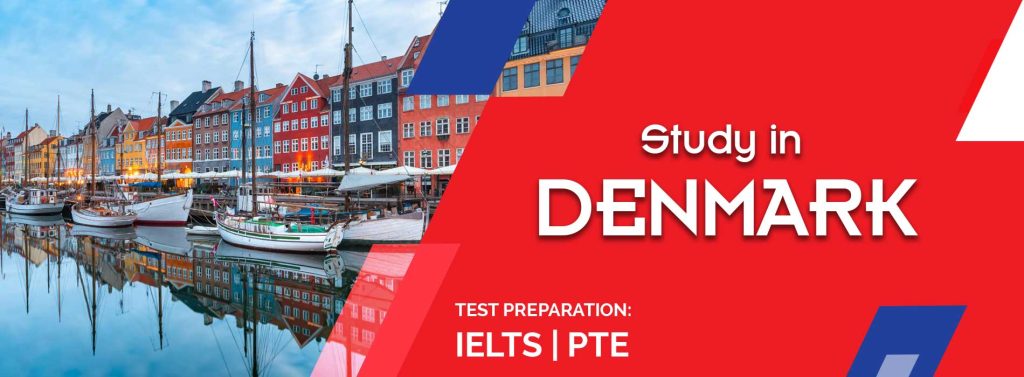
Overview
Are you dreaming of pursuing your higher education in Europe? Look no further than Birtamode Education Foundation (BEF) to guide you through this exciting journey. Europe is a continent known for its rich history, diverse cultures, and prestigious academic institutions. As an international student in Europe, you’ll have access to a wide range of top-notch universities and colleges that offer world-class education and a global learning experience.
With BEF by your side, you can explore study opportunities in various European countries and choose from an extensive selection of programs and disciplines. Whether you’re interested in business, engineering, arts, sciences, or any other field, our dedicated team of professionals will provide you with comprehensive guidance, from choosing the right institution to navigating the application process. Experience the vibrant student life, embrace cultural diversity, and gain valuable skills that will shape your future career. Let BEF be your trusted partner in turning your study in Europe dreams into a reality.
Brussels
Capital
17.1T
GDP
746.4M
Population
-
Dialing Code
English
Language
EUR
Currency
1.46M
International Students
13837
Universities
The application process for international students to study in Europe can vary depending on the country and university you choose. However, there are some general steps that most students need to follow. Here is an overview of the application process:
Research and Choose a Country and University: Start by researching different European countries and universities to find the best fit for your academic goals and preferences. Consider factors such as the program offerings, language of instruction, tuition fees, scholarships, and location.
Check Admission Requirements: Review the admission requirements of the universities you are interested in. This typically includes academic transcripts, proof of language proficiency (such as IELTS or TOEFL), recommendation letters, a statement of purpose, and sometimes entrance exams like the SAT or ACT.
Submit Online Application: Most universities in Europe have an online application system. Create an account and fill in the necessary details. Upload the required documents and ensure they meet the specified format and size requirements.
Pay Application Fees: Some universities may require an application fee, which needs to be paid during the application process. Check the university’s website for information on the payment methods and deadlines.
Submit Additional Documents: Depending on the university and program, you may need to submit additional documents such as a portfolio for creative programs, research proposal for doctoral studies, or financial statements to demonstrate your ability to cover the tuition fees and living expenses.
Track Application Status: After submitting your application, you can track its status through the university’s online portal. The university will communicate with you regarding any additional requirements or updates.
Await Admission Decision: Once your application is reviewed, the university will notify you of the admission decision. This can take several weeks to a few months, so it’s important to be patient.
Accept Offer and Arrange Visa: If you receive an offer of admission, carefully review the terms and conditions. If you accept the offer, follow the instructions provided by the university to secure your place and initiate the visa application process.
It is crucial to note that the application process and requirements may differ among universities and countries in Europe. It is advisable to visit the official websites of the universities and consult with Birtamode Education Foundation (BEF) for personalized guidance and support throughout the application process.
Europe offers a diverse and vibrant lifestyle for international students, with each country having its own unique cultural experiences and opportunities. While there can be variations in lifestyle and cost of living across European countries, here is a general overview:
Lifestyle: Europe is known for its rich cultural heritage, bustling cities, and a thriving social scene. International students in Europe can enjoy a multicultural environment, exciting festivals, art galleries, museums, and a wide range of recreational activities. European countries often prioritize work-life balance, offering ample opportunities for travel, outdoor adventures, and exploring historical landmarks.
Cost of Living: The cost of living in Europe can vary significantly depending on the country and city you choose. Generally, larger cities tend to have a higher cost of living compared to smaller towns or rural areas. Expenses to consider include accommodation, transportation, food, utilities, healthcare, and leisure activities. However, many European countries offer affordable or even free education for international students, and there are often part-time job opportunities available to help cover living expenses.
It’s important to plan your budget carefully and research the specific cost of living in the country you intend to study. Birtamode Education Foundation (BEF) can provide you with detailed information and insights about the lifestyle and cost of living in various European countries, helping you make informed decisions and effectively manage your finances while studying in Europe.
Visa requirements for international students to study in Europe can vary depending on the country you choose and your nationality. Here is a general overview of the visa requirements:
Student Visa: Most European countries require international students to obtain a student visa or residence permit to study in their respective countries. The specific name of the visa may vary (e.g., Student Visa, Residence Permit, National Visa), but the purpose is the same – to allow you to study in the country for a specified duration.
Acceptance Letter: To apply for a student visa, you typically need an acceptance letter from a recognized educational institution in the country you wish to study. This letter proves that you have been accepted into a program of study and are enrolled as a student.
Financial Proof: You may need to demonstrate that you have sufficient funds to cover your tuition fees and living expenses during your studies. This requirement helps ensure that you can support yourself financially without becoming a burden on the country’s resources.
Health Insurance: Many European countries require international students to have health insurance coverage for the duration of their stay. This ensures that you have access to necessary healthcare services while studying abroad.
Language Proficiency: Depending on the country and the language of instruction, you may need to provide proof of language proficiency through standardized tests such as IELTS or TOEFL.
Application Process: Each country has its own visa application process, which may include submitting an application form, supporting documents, passport photographs, and paying the required visa fees. It’s important to apply well in advance and follow the instructions provided by the respective country’s embassy or consulate.
It’s crucial to check the specific visa requirements of the country where you plan to study and consult with Birtamode Education Foundation (BEF) for personalized guidance and assistance in navigating the visa application process. They can provide you with accurate and up-to-date information, help you gather the required documents, and ensure that you meet all the necessary requirements for a successful visa application.
Europe offers a wide range of scholarships and funding opportunities for international students pursuing higher education. These scholarships aim to attract talented students from around the world and promote international collaboration. Here are some common scholarship programs available for international students in Europe:
Erasmus+ Scholarship: The Erasmus+ program, funded by the European Union, provides scholarships for students to study in participating European countries. It supports both short-term exchanges and full-degree programs, covering tuition fees, travel costs, and a monthly living allowance.
Eiffel Excellence Scholarship Program: This scholarship, offered by the French Ministry of Europe and Foreign Affairs, is awarded to outstanding international students pursuing master’s and doctoral degrees in France. It covers tuition fees, living expenses, and health insurance.
DAAD Scholarships: The German Academic Exchange Service (DAAD) offers a range of scholarships for international students, including the DAAD Scholarship for Development-Related Postgraduate Courses, which supports students from developing countries pursuing master’s degrees in Germany.
Chevening Scholarships: The Chevening Scholarship, funded by the UK government, provides fully funded opportunities for outstanding students from around the world to study in the United Kingdom. It covers tuition fees, living expenses, and travel costs.
Swedish Institute Scholarships: The Swedish Institute offers scholarships to international students interested in pursuing master’s programs in Sweden. These scholarships cover tuition fees, living expenses, travel grants, and health insurance.
Netherlands Fellowship Program (NFP): The NFP provides scholarships to professionals from developing countries to pursue master’s and PhD programs in the Netherlands. It covers tuition fees, living expenses, and travel costs.
Additionally, many universities and institutions in Europe offer their own scholarships and financial aid programs specifically for international students. It’s recommended to research and explore scholarship opportunities provided by the universities or countries you are interested in, as eligibility criteria, application processes, and deadlines may vary.
Birtamode Education Foundation (BEF) can assist you in identifying suitable scholarship opportunities, guiding you through the application process, and increasing your chances of securing financial support for your studies in Europe.
Europe offers attractive post-study work opportunities and the option to work while studying for international students. Here are some key aspects of working in Europe as an international student:
Post-Study Work Options: Several European countries have implemented post-study work schemes that allow international students to stay and work after completing their studies. The duration of the post-study work permit can vary from country to country, ranging from several months to a few years. This provides an excellent opportunity for students to gain practical work experience, explore career prospects, and contribute to the local workforce.
Work While Studying: Many European countries permit international students to work part-time during their studies. This allows students to support themselves financially, gain valuable work experience, and interact with the local community. The maximum number of hours you can work per week may be regulated, typically ranging from 10 to 20 hours during the academic year and full-time during vacation periods.
Job Opportunities: Europe offers diverse job opportunities across various sectors, including hospitality, retail, administration, research, and more. The availability of job opportunities may vary depending on the country, city, and language skills. International students often find internships, part-time jobs, and graduate roles that align with their field of study, providing practical exposure and enhancing their employability.
Work Permit Regulations: Each country has its own regulations and requirements for obtaining a work permit as an international student. These regulations may include restrictions on the number of hours you can work, the type of employment, and eligibility criteria. It is essential to familiarize yourself with the specific work permit regulations of the country where you plan to study and seek guidance from Birtamode Education Foundation (BEF) to ensure compliance with the regulations and make informed decisions.
Language Skills: Proficiency in the local language can significantly enhance job prospects, particularly in non-English-speaking countries in Europe. Acquiring language skills through language courses or language exchange programs can increase your chances of securing employment opportunities and integrating into the local work environment.
Birtamode Education Foundation (BEF) can provide valuable guidance and support in understanding the post-study work and work while studying opportunities available in different European countries. They can assist you in exploring job prospects, understanding work permit regulations, and preparing you for a successful transition from student life to the professional world in Europe.
APPLY NOW










